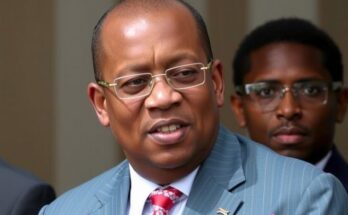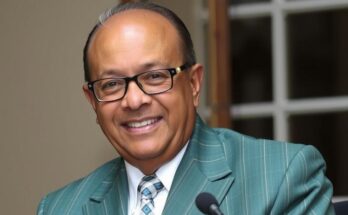Elon Musk’s plan to distribute $1 million a day until the US election has raised legal concerns regarding possible violations of federal laws against using cash to incentivize voting. Pennsylvania Governor Josh Shapiro expressed serious apprehensions about the initiative, which involves rewarding registered voters signing a petition about constitutional rights. Legal experts believe that the proposal may contravene laws prohibiting payment to induce voting or registration, thus questioning the ethics and legality of Musk’s actions.
Elon Musk’s recent announcement to distribute $1 million per day until the upcoming United States election has sparked significant concern among legal experts. The proposal, which aims to reward voters in key swing states who sign an online petition supporting the First and Second Amendments, could be in violation of federal laws that prohibit using financial incentives to influence voting behaviors. The concerns were echoed by Pennsylvania Governor Josh Shapiro, who described the initiative as “deeply concerning” and urged law enforcement to review the implications of such a cash giveaway. Musk’s involvement through his political action committee, America PAC, which he has pledged $75 million to in support of Donald Trump, raises further questions regarding the legality and ethicality of his actions. Experts have noted that while participation in PACs is a standard aspect of American political funding, Musk’s specific plan potentially contravenes federal regulations against compensating individuals for voting or registering to vote. Rick Hasen, a law professor, remarked that while Musk’s other activities might be legally ambiguous, the cash giveaway is evidently illegal. Brendan Fischer, another campaign finance attorney, further clarified that conditioning eligibility for payment on voter registration approaches the legal limits of acceptable campaign practices.
In the context of U.S. elections, political action committees (PACs) serve as critical vehicles for fundraising and expenditure aimed at influencing electoral outcomes. However, federal regulations stipulate prohibitions against direct financial incentives that could sway voters’ decisions. The Federal Election Commission outlines these restrictions to ensure that voting remains a freely exercised right without undue influence from monetary gain. The recent resurgence of high-profile figures, such as Elon Musk, in political funding raises pressing questions regarding compliance with these laws, especially in the lead-up to pivotal elections where voter turnout and engagement are paramount.
The implications of Elon Musk’s proposed cash giveaways are profound, inciting discussions around the legal frameworks governing campaign finance and voter influence. Legal experts have largely condemned the initiative as a violation of existing laws designed to preserve the integrity of the electoral process. This situation underscores the delicate balance between free expression in political support and adherence to regulatory standards aimed at preventing corruption in elections. As the November election approaches, scrutiny of such financial maneuvers will likely intensify alongside ongoing debates about their legality and ethical ramifications.
Original Source: www.aljazeera.com




